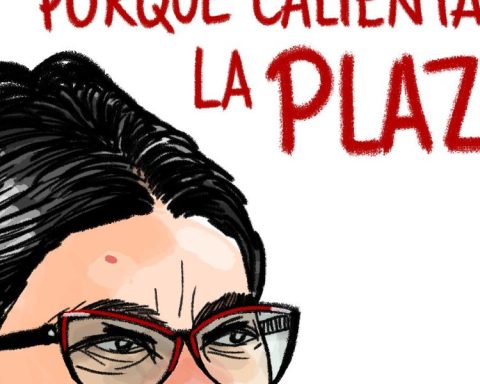Bernardo Batiz V.
F
inally, the opposition did more than sending messages electronically, spreading falsehoods, and criticizing everything the government does or says.
I can’t resist the temptation to reproduce an anonymous joke that I found out there. Its about Opposition Activist’s Manual. Article 1º If López says yes, you say no. Article 2º If López says no, you say yes. end of manual
. I propose one more article: When in doubt, accuse him of leading us to a dictatorship
.
The march was useful to demonstrate that in Mexico the rights of assembly and opinion are respected; aroused interest in a substantive debate on the electoral reform. The opposition, for now, demonstrated its conservative vocation by proposing, not an alternative to the reform presented, but a closed defense of the rules as they are now. They want the INE and the rules that govern it as something definitive, monolithic, immovable; Is there something more conservative?
The only speaker, José Woldenberg, affirmed that the INE is the result of seven or eight legislative changes that occurred during the years of neoliberalism; then it was possible to change and move forward, now no longer, now the INE is not touched. There is no congruence.
Contrary to that way of reasoning, I think that the frank and open proposal of the Executive invites to debate and to participate; For my part, I accept the proposed change, but I think that the part that intends to eliminate proportional representation in Congress has not been considered and I suggest that the matter be studied carefully, the tricky way in which it currently works be corrected and it become to the original text with which it was incorporated into our legislation.
The principle that sustains the institution is democratic and seeks to have a proportion between the votes obtained by a party and the number of seats in Congress. The percentage of votes in the elections must generate an equivalent number of popular representatives. If a party reached, for example, 30 percent of the votes, it must have more or less 30 percent of the seats.
In the golden days of the PRI, one party won almost all the 300 districts with a vote that was high, but that represented, with everything and maneuvers, not the totality of the votes, only between 70 or 80 percent and reached almost 100 percent of the seats; Under these conditions, with a vote of just between 12 and 20 percent, the PAN obtained five or six deputies, which represented only 2 percent of the representatives.
It was then that President Kennedy proposed supporting the development of Latin American countries and implemented the Alliance for Progress program. Among some conditions that were set, it was required that the countries that aspired for aid, among which there were many dictatorships, perfect or imperfect, take certain steps towards democracy. In Mexico there was an official party, almost the only one, and the Díaz Ordaz government had the idea of recognizing some opposition deputies, without sacrificing PRI candidates, and adopted proportional representation, thus beginning a precarious parliamentary life.
The reform kept the 300 deputies who would reach the Chamber, elected in the districts by the principle of relative majority, and the minority parties would be recognized a number of proportional representation deputies if they obtained at least 2.5 percent of the total vote, with a maximum of 20 deputies. This is how the first legislatures appeared multiple; Acción Nacional earned its 20 deputies by hand, but the PPS and PARM were given a few each, without the minimum number of votes required.
How were the representatives of proportional representation or party deputies
? Only candidates who had participated in a district without obtaining the majority and, of them, the highest averages among all the losers, reached the House; that is, those who had campaigned and obtained a high percentage of votes won the position. Therefore, they depended on objective data, derived from the effort, they did not need the approval of the party leaders, they earned their seats in Congress by hand.
In one of the seven or eight reforms mentioned by Mr. Woldenberg, the party leaderships came up with the idea of repealing this equitable way of electing representatives of proportional representation and they invented the district lists, by means of which those same leaderships or their friends, without making campaign, they reached Congress. The injustice is evident, one towards a campaign, could win or lose and others (in which I once found myself) won by being in the best places on the lists. As can be seen, equity was perverted and the partidocracy advanced.
In my opinion, the proportional representation deputies should not be abolished, only the lists of privileged persons should be abolished and a return to the original system; Thus, there will be equity, a fair system, it will be earned with work and votes.














